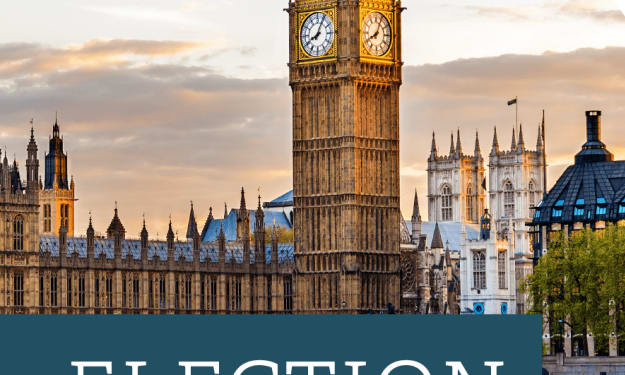COP 21; The Elephant in the Room
Money and Populations

What is human effort used for – expended on?
In our bid to become carbon neutral, to reduce the damage we're doing to the planet and to resolve the inequalities that render sectors of human society fatally poor (if that is actually a serious society-wide desire...) one thing is becoming clearer with every political statement and international attempt at agreement; our consumerism is the chief cause of the planet's ills.
We are addicts. The proliferation of 'retail therapy' is our tacit admission to that addiction.
We use money to exchange for our drug of choice and for many the addiction is to Money itself. The more we have, the more we want.
We have set up the entire corporate structure to maximise the garnering of money and, in recent decades, we are seeing societal regulation of this corporate mania being eroded in law as governments increasingly follow despots' examples in restricting society's ability to influence corporate activities, whether through public protest or workforce strike action.
Covid lockdown around the world should have killed humanity had all the customary commercial activity been essential. However, human society stepped up to cover 'The Essential' activities and mankind survived the long pause in production and retail services. Many businesses did falter and fail, but what killed them off was the way society's money was redistributed and managed; much of corporate activity was protected and aspects of individual enterprise were also permitted to survive. But rent 'holidays' and other financial reliefs were frequently time-limited, with a pay-back reality check when movement restrictions were lifted.
The planet also began an immediate and uplifting recovery during the year of human inactivity. Streets were reclaimed by wildlife. Insects were in greater evidence and there was a wonderful peace throughout the countryside.
So how much of what we do is essential for human survival? The answer is patently “a very small proportion!” Furthermore, when we look at society's rewards for effort, it became clear that most of the absolutely essential work of sustaining society is actually the lowest paid. Movement of essential resources – supply and waste removal, maintaining good health and attending to the most needy were carried out by minimum pay operatives, health care sectors who've experienced long-term pay suppression and volunteers.
The Elephant in the Room in the latest discussions around climate change – but also around the quietly dramatic unfolding extinction event – is that all of this is being driven by corporate money harvesting. The corporations are killing the planet and killing society.
The frankly criminal activities of fact suppression, disinformation and harmful/damaging-product promotion in the face of evidence of those harms, are pushed on society by corporations. The buying of government, the lobbying and the underhand intimidation through law-suits and more criminal behaviours are so ingrained in the function of society now that we are become inured to what should be scandalous and actionable corporate activity.
So, what can we do immediately to start turning around our own extinction event? The answers are already there at the front of society's collective mind. Who will have the nerve to begin implementing them?
- We need to turn off money - a whole industry of damaging manipulation should be replaced with a genuine-cost economy: no trading in the tokens of trade (money); fair, real-value payment to the global workforce; a standard, planet-wide token of exchange, based on the actual energy cost of an item or service. Call it 'The Calorie'. ...Money is a fictional construct. We can deconstruct it.
- We need to regulate the most destructive impacts of wealth disparity: housing costs and provision; food distribution; health care; infrastructure that enables society to function – utilities, communications.
- The MOST taboo topic is population growth. All the statistics and data are discussed in terms that suggest inevitability and natural progression. The reality is that humanity's burgeoning population is not natural but a result of our increasing control over our environment as we wipe out disease and poverty (in some quarters) but don't rein-in our reproductive urge, which was evolved in response to the natural hazards of our earlier existence. We remain healthy and functioning now long into what used, even a few decades ago, to be considered 'old age'. We are able to sustain useful life despite medical conditions that would have killed us a generation ago. Whilst birth rates have dropped in some sectors of society, our overall impetus is to keep the generations coming. Increasing population stretches resources, but also reduces the quality of life for most of the population. We need to get a grip and we need to reduce global population. This shouldn't be immediately imposed in some drastic 'one child' policy, but planned to take place over the course of the next generation. Simply restricting families to two children would at least stabilise and halt population growth. Other natural factors would inevitably result in declining population numbers. The only arguments against allowing society to undergo a 'cull' are financial; current structures (in the West) mean that the costs of supporting ageing populations are unreasonably placed as a burden on the younger working population. It should become socially unacceptable to have more than two children as a rule. Efforts to legislate population numbers have been terrible human-rights failures in the past and society needs to avoid that.
- Mankind is seemingly infinitely innovative. Corporate ideologies have both utilised and simultaneously stifled this fabulous quality. Society needs to take ownership of innovation, supporting and protecting innovators and ensuring good and useful developments are not hijacked by corporate pirates. There is a widely believed argument that corporate competition enhances innovation, but the reverse is true; corporations compete with the sole aim of market dominance and unimaginable efforts are made to protect each corporation's market share, regardless of the quality or usefulness of their product. They strive to kill each other off. We're seeing more and more corporate buy-outs which then inevitably progress to asset stripping or outright destruction of the latest acquisition. No sector of society is safe from this process, from consumer items, through utilities and to health care. Corporate dominance needs to be reworked to serve society and the planet. Corporate structures are potentially quite efficient and if the drive was turned away from 'profit at all costs' to nurture of 'the product' and the good health of society and the planet then we could very quickly reverse this headlong careen to our extinction. That said, there is a top-heavy evaluation of the 'worth' of positions further up the corporate structure which needs to be reversed or undone entirely - without a workforce a corporation is nothing.
Conclusions
These measures would immediately free-up a sizeable percentage of society's effort potential. They would remove financial restrictions on essential activities, on efforts to repair the environment – and on human creativity. They would free up artistic and cultural talent.
The past three decades have, in the UK and the wider 'West', seen 'the people' strapped deeper and tighter into the harness of corporate endeavour: free time has been gradually eroded; financial reward has become reduced to hand-to-mouth subsistence only, for much of the work-force; and our practical abilities to make ethical choices in purchasing essential items have been all but removed as family finances restrict us to feeding ourselves on what we can afford; built-in obsolescence keeps us replacing gear that would have been 'built to last' in previous generations. Perversely, we are 'richer' than we were a century ago, in that the workings of supply chains have removed seasonal reliance on crops and on geographical restrictions on availability of everything we make. This global 'open season' availability also assists corporations in tying down local populations through the way they exploit differences in human-rights standards and choose to apportion their production facilities. Distance to market is no longer the overriding restriction it used to be – and that global transport network is yet another nail in the climate coffin as it is run almost entirely on fossil fuels.
We will not save the living conditions that we need on this planet as long as we permit our love of money and 'things' to rule our actions.
About the Creator
Christopher Lloyd
A lifetime in horticulture, of one sort or another - a life of lessons. And now a new identity; 'Retired'. Writing in the morning, bees and gardens in the afternoon and art in the evenings. That's the plan. When I can stick to it...
Enjoyed the story? Support the Creator.
Subscribe for free to receive all their stories in your feed. You could also pledge your support or give them a one-off tip, letting them know you appreciate their work.






Comments
There are no comments for this story
Be the first to respond and start the conversation.